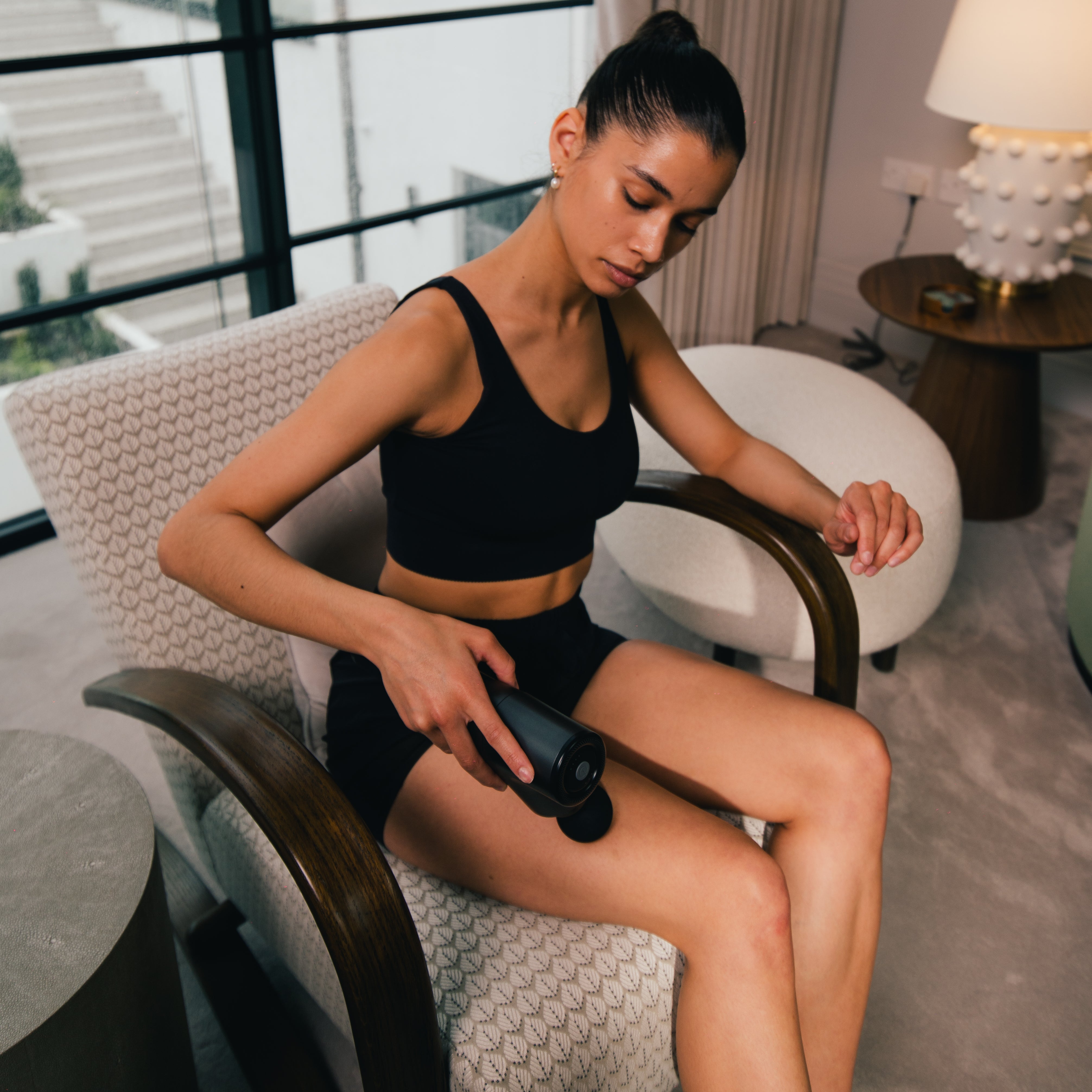Did you know that healthy adults spend approximately one-third of their lives sleeping? It is one of the most basic human needs. It is defined as a dynamic behavior; a brain activity controlled by precise and intricate mechanisms. It is more than just a state of relaxation. It has its own unique, positive functions.
Research has shown that sleep quality and physical and psychological conditions have significant correlations in many areas. Sleeping is crucial for cognitive functioning and the creation of new memories. New memories are formed in the brain while you sleep, which results in better recall and accuracy the next day. Sleep boosts energy levels and enhances problem-solving skills and concentration. All of these help improve athletes' performance and enhance learning.
Sleeping also plays a significant role in the recovery, repair, and physiological growth of athletes, which greatly affect sports performance.
Sleep quality, however, is affected by many factors, which can be grouped into two – intrinsic factors and external factors.
Stress, tension, fatigue, and mood are common intrinsic factors.
1. Stress and Tension
College students often experience sleep problems due to tension and stress. Many athletes are affected by pressures that result from their family commitments, training, and social life. Pre-sleep cognitive awakening, which includes inability to stop thinking, can lead to sleep disruption. These factors may lead to anxiety and prolongation of sleep latency. They may also cause frequent night awakenings.
To help you relieve stress and tension, try yoga, meditation, or massage. These techniques can help calm your mind and body, helping you fall asleep faster.
Massage guns come in handy. It can help reduce stress and improve circulation and mental clarity. Check PROGUN Elite or PROGUN nano.
2. Fatigue and Mood
Mood and sleep are closely related. An athlete who has suffered from chronic fatigue, overtraining, or is suffering from depression for long periods of time will have trouble sleeping and may experience insomnia.
Excitation, on the other hand, will increase a person's arousal, which can make it difficult to fall asleep.
Environment, travel, caffeine and alcohol consumption, medications, and food are some of the most common extrinsic factors that could affect sleep patterns and quality.
3. Environment
Noise, such as traffic and snoring, can reduce sleep time and REM sleep. Extreme room temperatures can also disrupt sleep. The body temperature can be adjusted according to the circadian rhythm in extreme heat or cold, which could disrupt sleep quality.
Venter discovered in 2010 that 40% of team-sport athletes often had difficulty falling asleep. Noise and illumination were the most important factors.
4. Alcohol
Alcohol consumption has both positive as well as negative effects on sleep. Experts say that blood alcohol levels lower than 10 mg/dL could increase sleep time and decrease wakefulness. However, blood alcohol levels higher than 10 mg/dL can cause a decrease in REM sleep.
Drinking more than two alcoholic drinks per day may lower sleep quality and prolong sleep latency. The ingestion of alcohol regularly can lead to a loss of slow-wave sleep, and permanent disruptions to sleep patterns.
5. Caffeine
Numerous studies have shown that caffeine consumption has a negative impact on sleep quality and latency. Caffeine reduces melatonin levels. It is regarded as a mild central nervous system stimulant. Bonnet and Arand found that caffeine intakes exceeding 100 mg before bedtime could affect sleep quality, sleep latency, and slow-wave sleep.
6. Travel
Student-athletes may need to travel abroad for competitions or exchange training. The circadian rhythm will shift when you travel across time zones, affecting both your sleeping patterns and athletic performance. Jet Lag can cause insomnia, moodiness, and increased irritability. Long travels also make you feel tired, making it more difficult to fix sleep disturbances.
Slowly adjust your sleep schedule to the destination you are visiting to reduce jet lag.
Try not to nap when you arrive at your destination. Instead, go outside and get some sunlight to keep you awake until bedtime.
Stay hydrated, and avoid alcohol and caffeine. These can exacerbate jet lag.
7. Medications
Pills or liquid medications are prescribed to treat certain conditions. However, some medications can also affect sleep quality and cause insomnia. These include antidepressants, alpha-blockers or beta-blockers, steroids, and other drugs.
These medications can cause insomnia for many reasons. Alpha-blockers, for example, have been shown to reduce REM sleep, which is the last stage of a sleep cycle, and when people usually dream.
Beta-blockers can cause sleep disruptions like nightmares and wake you up at odd hours.
Steroids can have a negative impact on your body's ability to relax and sleep. This could lead to bad dreams and difficulty falling asleep.
Some doctors might prescribe sleeping pills to patients who have trouble falling asleep. Prescription and over-the-counter sleep medication are meant to be temporary and should not last for long.
Talk to your doctor if you are concerned about sleeping and medication.
8. Food
While food is essential for daily nutrition, it can also affect sleep quality and cause discomfort.
Heartburn or gastroesophageal acid reflux disease (GERD) are triggered by certain foods, including fried dishes, fast food, chips, and spices.
Also, consuming too much food before going to bed could cause uncomfortable indigestion and keep you awake at night. Light, healthy snacks with minimal sugar and protein are better for sleeping than a large meal.
To help improve your sleep quality, eat foods or drink beverages that can help with acid reflux. These include whole grains, vegetables, and watery foods such as celery and watermelon.
High-quality sleep is essential for your health. It directly affects the quality of your physical, cognitive, and emotional well-being. As athletes, you need quality sleep to improve your cognitive skills, mood, and physical energy. These can greatly enhance your quality of life and sports performance.





Leave a comment
This site is protected by reCAPTCHA and the Google Privacy Policy and Terms of Service apply.